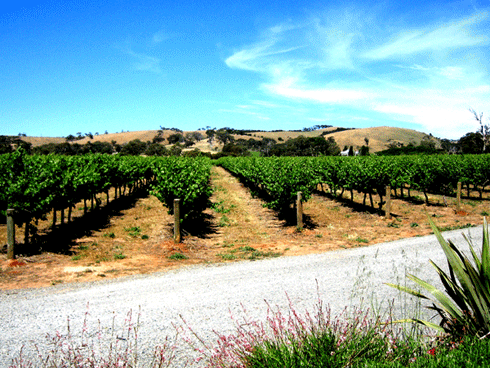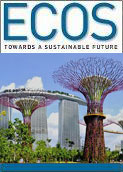
|
Published: 4 March 2013
Australian wine producers lead climate change adaptation
A new study investigating wine regions' adaptation to climate change has found that many wine producers in South Australia's McLaren Vale are leading the world at responding to future risk.

|
|
McLaren Vale vineyard: a wine-growing region ahead of its French cousins. Credit:
Fiona Wilkinson via flickr
|
The study, conducted by researchers at the University of Adelaide and Université Paris Diderot, has found that by making the difficult decisions now to adjust their viticultural systems, McLaren Vale wine producers are more likely to be resilient to unfavourable climatic conditions in the decades to come.
Led by French researcher Anne-Laure Lereboullet, the study compared two Mediterranean climate wine regions – McLaren Vale in Australia and Roussillon in France – and looked at the ability of each region to adapt to climate change at a social, ecological, agricultural and economic level.
‘Viticultural systems in Mediterrranean climatic areas such as South Australia and southern France are projected to experience significant and rapid changes in climate over the coming decades,’ says study co-author Dr Douglas Bardsley from the University of Adelaide.
‘By 2060 we expect to see decreases in rainfall by about 30 per cent and increases in temperatures up to two degrees Celsius, which will place additional water stress on grapevines and berries. This in turn will impact on the quality and quantity of wine produced.
‘By working in cooperation to secure their water and land resources, and experimenting with new approaches to make their distinctive wines, producers in McLaren Vale have established a resilient system that will help them to adapt.
‘Local initiatives such as the recycled water scheme for irrigation, support for government policy to retain rural land use, and experimentation with viticultural practices including variety, mulching, pruning and harvesting, have all reduced local vulnerability to climate change.
‘Other agricultural industries and regions could learn from these activities.’
Dr Bardsley says that while these initiatives provide great flexibility for McLaren Vale in comparison to Roussillon, some producers in the region still have a lack of understanding of climate change. ‘This could hinder their ability to adapt at a time when they should be considering the long-term impact for themselves and the region as a whole.’
The McLaren Vale region produces between 40-70,000 tonnes of wine grapes annually. In 2010, the region's grape crush had an estimated total value of $51.4 million and the region generated an overall contribution of more than $160 million in tourism revenue.
Dr Bardsley says the ‘viticultural challenge’ will be to consistently produce high-quality wines for international markets in a warming, drying climate.
‘It is very difficult for producers to simultaneously adapt to both a changing climate and highly competitive market conditions,’ he says.
Source: University of Adelaide



